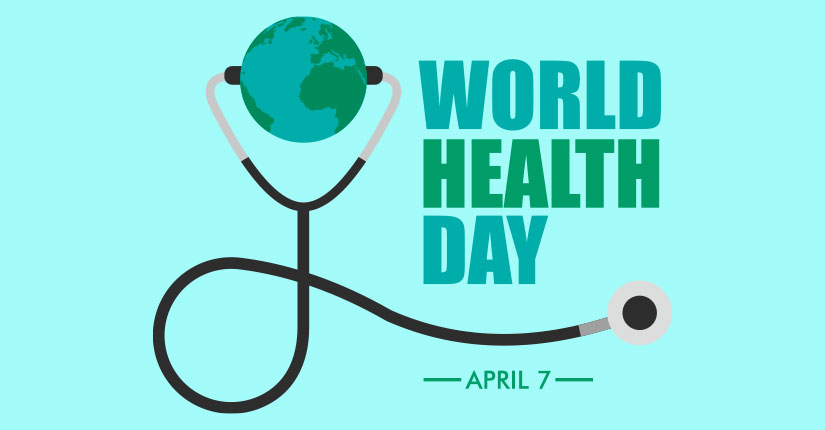4 Impact of stress on nutrition that you must know about
By Nmami Agarwal 06-Sep 2023 Reading Time: 19 Mins

Stress is an unavoidable part of our daily lives and can have a significant impact on our well-being. It affects our mood, sleep patterns, and even our eating habits. When we are stressed, we tend to reach for comfort foods that are high in sugar, salt, and fat but did you know that stress can also affect our body’s ability to absorb nutrients? Chronic stress can lead to poor digestion, inflammation, and a weakened immune system, resulting in a range of health problems. Today, we will explore the hidden connection between stress and nutrition also we will look at the impact of stress on our bodies, and offer tips on how to manage stress levels and improve our eating habits for better physical and mental health.
Introduction to the stress-nutrition connection
In today’s fast-paced and demanding world, stress has become an inevitable part of our lives from work pressures to personal struggles, stress can affect us in various ways. One area where its impact is often overlooked is nutrition. The connection between stress and nutrition is a hidden link that can significantly influence our overall well-being. When we experience stress, our bodies undergo physiological changes that can disrupt our eating habits and alter our nutritional needs and some individuals may turn to comfort foods high in sugar and fat as a coping mechanism, seeking temporary relief from stress-induced emotions. These unhealthy food choices may provide momentary comfort, but they can have long-term consequences on our health. On the other hand, chronic stress can also suppress our appetite and lead to undernourishment. Stress hormones, such as cortisol, can interfere with our body’s ability to properly digest and absorb essential nutrients which can lead to deficiencies in vital vitamins and minerals, compromising our immune system and overall vitality. Furthermore, stress can disrupt our sleep patterns, causing sleep deprivation, which further affects our dietary choices. Lack of sleep can increase our cravings for high-calorie foods and impair our judgment when it comes to making healthy food choices. This vicious cycle of stress, poor sleep, and unhealthy eating habits can have a detrimental impact on our physical and mental well-being.
Understanding the physiological response to stress
Stress is an inevitable part of life, and it can have a profound impact on our overall well-being, including our nutritional choices to fully grasp this connection, it’s crucial to understand the physiological response that occurs when we experience stress. When we encounter a stressful situation, our body’s fight-or-flight response is triggered and this instinctive reaction releases a surge of hormones, such as cortisol and adrenaline, into our bloodstream. The purpose of this response is to prepare our body to either confront the stressor or flee from it. In the short term, this physiological response can be beneficial, as it provides us with the necessary energy and focus to deal with the immediate stressor. However, when stress becomes chronic or prolonged, it can disrupt our body’s natural balance and have detrimental effects on our nutrition. One of the ways chronic stress impacts our nutrition is through emotional eating and many people turn to food as a coping mechanism when they are feeling stressed, seeking comfort in sugary or fatty foods that provide temporary relief. This emotional eating pattern can lead to weight gain and poor dietary choices, contributing to a cycle of stress and unhealthy habits. Moreover, stress can affect our digestive system. When we are stressed, blood flow is redirected away from our digestive organs to our muscles, as part of the fight-or-flight response. This can result in decreased nutrient absorption and digestion, leading to nutrient deficiencies over time. Furthermore, stress can disrupt our sleep patterns, which in turn can impact our hunger and satiety hormones. Lack of quality sleep can increase cravings for high-calorie foods and disrupt our hunger cues, leading to overeating and poor food choices.
How stress affects appetite and cravings
Stress is an unavoidable part of life, and its effects on our overall well-being are well-documented. However, what many people may not realize is that stress can have a significant impact on our nutrition as well and when we experience stress, our bodies release a hormone known as cortisol, often referred to as the “stress hormone.” This hormone has been found to influence our appetite and food choices in profound ways. One of the most common ways stress affects our appetite is by triggering cravings for unhealthy, comfort foods and these foods are typically high in sugar, unhealthy fats, and calories, providing a temporary sense of relief and pleasure. This phenomenon is often referred to as “stress eating” or “emotional eating.” Research has shown that stress can increase our desire for foods rich in carbohydrates and fats which is because these foods stimulate the release of serotonin, a neurotransmitter that helps regulate mood and promote a sense of calm and well-being. However, indulging in these cravings can lead to a vicious cycle, as consuming excessive amounts of unhealthy foods can further contribute to stress and negative emotions. On the other hand, stress can also have the opposite effect on appetite, causing some individuals to lose their desire to eat altogether also this can be particularly problematic as it may lead to inadequate nutrient intake and potential deficiencies, further exacerbating the negative impact of stress on our overall health. Recognizing the connection between stress and our eating habits is crucial in order to develop healthy coping strategies. It’s important to find alternative ways to manage stress that don’t involve turning to food for comfort. Engaging in physical activity, practicing relaxation techniques such as deep breathing or meditation, and seeking support from loved ones or professionals can all help in reducing stress levels and minimizing their impact on our nutrition.
The impact of stress on digestion and nutrient absorption
Stress is often seen as an intangible force that affects our mental and emotional well-being. However, its impact extends far beyond just our psychological state. In fact, stress has a profound influence on our physical health, particularly when it comes to digestion and nutrient absorption and when we experience stress, our body undergoes a series of physiological changes, including the release of stress hormones like cortisol. These hormones trigger a fight-or-flight response, diverting blood flow away from the digestive system and towards the muscles, heart, and brain. This shift in blood flow can significantly impact our digestion and nutrient absorption processes. One of the key effects of stress on digestion is a decrease in the production of digestive enzymes and these enzymes play a crucial role in breaking down food into smaller particles that can be absorbed by the body. When their production is compromised due to stress, the efficiency of digestion is reduced, leading to issues such as bloating, indigestion, and nutrient deficiencies. Moreover, stress can also disrupt the balance of gut bacteria, which are essential for optimal digestion and nutrient absorption, and the gut microbiome, composed of trillions of microorganisms, helps break down complex carbohydrates, produce vitamins, and regulate the immune system. However, chronic stress can alter the composition of the gut microbiome, impairing its ability to perform these vital functions.
Stress-related behaviors and their impact on nutrition
When stress takes hold of our lives, it can have a profound impact on our behaviors, including those related to nutrition and stress triggers various responses in our bodies, both physical and emotional, that can lead to unhealthy eating habits. One common stress-related behavior is emotional eating and many people turn to food as a source of comfort or distraction when they are feeling stressed or overwhelmed. These individuals often crave high-calorie, sugary, or fatty foods that provide temporary relief but can have negative long-term effects on their nutrition. Moreover, stress can disrupt our regular eating patterns and some individuals may experience a loss of appetite and skip meals altogether, while others may resort to mindless snacking throughout the day. These erratic eating habits can result in nutrient deficiencies or excessive calorie intake, depending on the choices made during these periods of stress. Furthermore, stress can influence our food choices and when we are stressed, we may gravitate towards convenient, processed foods that require minimal preparation. These options are often high in sodium, unhealthy fats, and added sugars, which can have detrimental effects on our overall health and nutrition. Interestingly, stress can also impact the body’s metabolism. When stressed, our bodies release cortisol, a hormone that can increase appetite and promote fat storage, particularly in the abdominal area and this hormonal response can further contribute to weight gain and poor nutrition if not managed effectively. Recognizing and addressing stress-related behaviors is crucial for maintaining healthy eating habits and it’s important to find alternative coping mechanisms for stress, such as exercise, mindfulness techniques, or engaging in hobbies, to prevent turning to food for comfort. Developing a balanced meal plan and incorporating nutritious, whole foods can also help mitigate the negative impact of stress on our nutrition.
The role of stress in nutrient deficiencies and imbalances
Stress can have a profound impact on our overall health and well-being, and one area where its effects can be particularly detrimental is nutrition and when we experience stress, our bodies undergo various physiological changes that can disrupt the delicate balance of nutrients that our bodies need to function optimally. One of the ways in which stress can affect our nutrition is through the disruption of appetite and eating patterns. Some individuals may experience a loss of appetite or find it difficult to eat when they are under stress, leading to inadequate intake of essential nutrients. On the other hand, stress can also trigger emotional eating or cravings for unhealthy, comfort foods that are high in sugar, fat, and salt. This can lead to overconsumption of these foods and a lack of proper nutrients. Moreover, stress can impact the absorption and utilization of nutrients in our bodies. Chronic stress can interfere with the digestive process, impairing the absorption of nutrients from the foods we eat. Additionally, stress can lead to increased inflammation in the body, which can further disrupt the absorption and utilization of key nutrients. Certain nutrients are particularly vulnerable to the impact of stress such as prolonged or chronic stress can affect the levels of important vitamins and minerals such as vitamin C, B vitamins, magnesium, and zinc. These nutrients are involved in various physiological processes, including immune function, energy production, and mood regulation. When stress disrupts their balance, it can lead to deficiencies or imbalances that can exacerbate the negative effects of stress on our health to mitigate the impact of stress on nutrition, it is important to prioritize self-care and stress management techniques. Engaging in regular exercise, practicing mindfulness or meditation, and getting enough sleep are all effective strategies for reducing stress levels.
Creating a balanced lifestyle for optimal nutrition and stress management
To put it in a nutshell, it is evident that there is a strong connection between stress and nutrition. The impact of stress on our eating habits can be profound, leading to unhealthy choices and disrupted eating patterns. Likewise, poor nutrition can exacerbate stress levels, creating a vicious cycle that can be detrimental to our overall well-being to break this cycle and create a balanced lifestyle, it is crucial to prioritize both nutrition and stress management. Incorporating nutrient-dense foods into our diet, such as fruits, vegetables, whole grains, and lean proteins, can provide the necessary fuel for our bodies to function optimally and combat the negative effects of stress.
By consciously integrating nutrition and stress management into our daily lives, we can create a harmonious balance that supports our overall health and happiness. Remember, it is not just about what we eat, but also how we nourish our minds and souls. Let us strive for a balanced lifestyle that prioritizes both nutrition and stress management for optimal well-being.





















